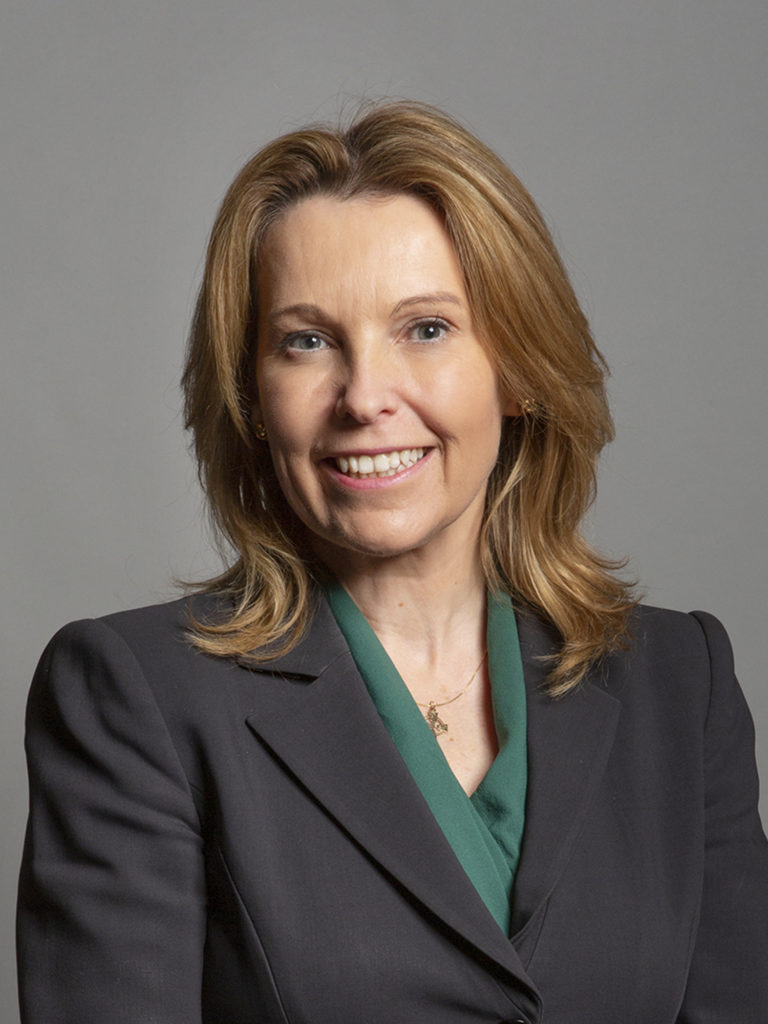Natalie Elphicke – 2022 Speech on the Online Safety Bill
The speech made by Natalie Elphicke, the Conservative MP for Dover, in the House of Commons on 5 December 2022.
I rise to speak to new clause 55, which stands in my name. I am grateful to my many right hon. and hon. Friends who have supported it, both by putting their name to it and otherwise. I welcome the Minister and his engagement with the new clause and hope to hear from him further as we move through the debate.
The new clause seeks to create a new criminal offence of intentionally sharing a photograph or film that facilitates or promotes modern slavery or illegal immigration. Members may have wondered how so many people—more than 44,000 this year alone—know who to contact to cross the channel, how to go about it and how much it will cost. Like any business, people smuggling relies on word of mouth, a shopfront or digital location on the internet, and advertising. As I will set out, in this context advertising is done not through an advert in the local paper but by posting a video and photos online.
Nationalities who use the channel crossing routes are from an astonishing array of countries—from Eritrea and Vietnam to Iraq and Iran—but they all end up arriving on boats that leave from France. Since May 2022, there has been a massive increase in the number of Albanians crossing the channel in small boats. From May to September this year, Albanian nationals comprised 42% of small boat crossings, with more than 11,000 Albanians arriving by small boats, compared with 815 the entire previous year. It is little wonder that it is easy to find criminal gangs posting in Albanian on TikTok with videos showing cheery migrants with thumbs up scooting across the channel on dinghies and motoring into Britain with ease. Those videos have comments, which have been roughly translated as:
“At 8 o’clock the next departure, hurry to catch the road”;
“They passed again today! Get in touch today”;
“Get on the road today, serious escape within a day, not…a month in the forest like most”;
“The trips continue, contact us, we are the best and the fastest”;
and
“Every month, safe passage, hurry up”.
However, far from being safe, the small boat crossings are harmful, dangerous and connected with serious crime here in the UK, including modern slavery, the drugs trade and people trafficking.
With regard to the journey, there have been a number of deaths at sea. The Minister for Immigration recently stated that many people in processing centres
“present with severe burns that they have received through the combination of salty water and diesel fuel in the dinghies.”—[Official Report, 28 November 2022; Vol. 723, c. 683.]
That, of course, underlines why prevention, detection and interception of illegal entry is so important on our sea border. It also speaks to the harm and prevention of harm that my new clause seeks to address: to identify and disrupt the ability of those gangs to post on social media and put up photographs, thereby attracting new business, and communicate in relation to their illegal activity.
The National Crime Agency has identified links with the criminal drugs trade, modern slavery and other serious and violent crime. That is because illegal immigration and modern slavery offences do not just happen abroad. A criminal enterprise of this scale has a number of operators both here in the UK and abroad. That includes people here in the UK who pay for the transit of another. When they do, they do not generally have the good fortune of that other individual in mind. There are particular concerns about young people and unaccompanied children as well as people who find themselves in debt bondage in modern slavery.
That also includes people here in the UK who provide information, such as those TikTok videos, to a friend or contacts in a home country so that other people can make their own arrangements to travel. It includes people here in the UK who take photos of arrivals and post or message them to trigger success fees. Those fees are the evidence-based method of transacting in this illegal enterprise and are thought to be responsible for some of the most terrifying experiences of people making the crossing, including even a pregnant woman and others being forced into boats at gunpoint and knifepoint in poor weather when they did not want to go, and parents separated from their children at the water’s edge, with their children taken and threatened to coerce them into complying.
Last year, 27 people died in the channel in a single day, in the worst small boat incident to date. A newspaper report about those deaths contains comment about a young man who died whose name was Pirot. His friend said of the arrangements for the journey:
“Typically…the smugglers made deals with families at home. Sometimes they turned up at the camp in masks. The crossing costs about £3,000 per person, with cash demanded in full once their loved one had made it to Dover. One of the Iraqi Kurdish smugglers who arranged Pirot’s crossing has since deleted his Facebook page and WhatsApp account”.
TikTok, WhatsApp and Facebook have all been identified as platforms actively used by the people smugglers. Action is needed in the Bill’s remit to protect people from people smugglers and save lives in the channel. The new offence would ensure that people here in the UK who promote illegal immigration and modern slavery face a stronger deterrent and, for the first time, real criminal penalties for their misdeeds. It would make it harder for the people smugglers to sell their wares. It would help to protect people who would be exploited and put at risk by those criminal gangs. The risk to life and injury, the risk of modern slavery, and the risks of being swept into further crime, both abroad and here in the UK, are very real.
The new offence would be another in the toolbox to tackle illegal immigration and prevent modern slavery. I hope that when the Minister makes his remarks, he may consider further expansion of other provisions currently in the Bill but outside the scope of our discussions, such as the schedule 7 priority offences. New clause 55 would tackle the TikTok traffickers and help prevent people from risking their lives by taking these journeys across the English channel.


